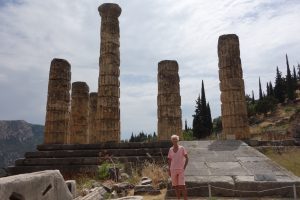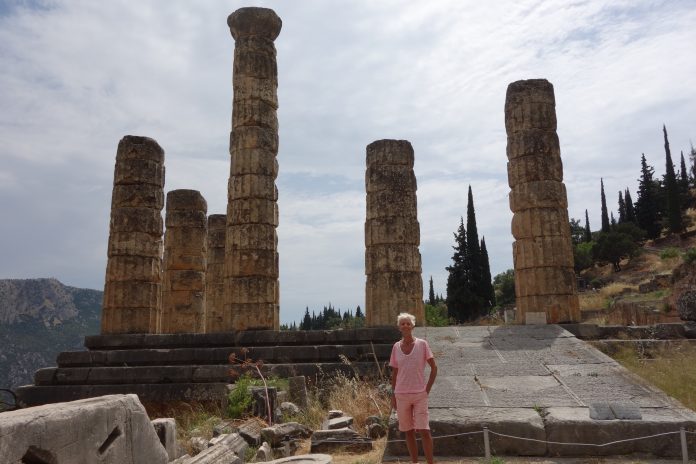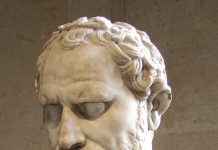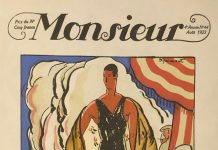Stories of origin abound in ancient literature, but until now no major study of them has been published. Anke Walter, a Lecturer in Classics at Newcastle University has admirably filled that important gap in knowledge with this book.
In a book review I also published today, I looked at the role of Jupiter in the Roman imagination. This included a bit about Jupiter in Virgil’s Aeneid, a poem that Walter also examines. The two books can profitably be read together, as is evident from Walter’s very different focus on Jupiter in the Aeneid. In Book 5 of that poem we encounter the Game of Troy, an equestrian event held in Rome that linked the origin of Rome with ancient Troy. “The action closely interacts with Jupiter’s prophecy in Book 1 and the role of Rome’s fate explained there. The story of origin, which invokes the poet’s present, recalls the prophecy of the god” about the great glory that would be the fate of Rome. “That remote past,” writes Walter, “is now being fulfilled in the Augustan present, which becomes a time of arrival. The role of fate is so strong that it even colours the notion of time itself.”
As issues of time and fate are complex, the reader must be prepared to encounter a variety of explications as the author studies not just the Augustan era (the sole focus of the other book review I wrote), but also Archaic Greece, Hellenistic Greece and early Christian works. With a remit to cover a thousand years, this relatively slim book of 282 pages takes the reader on a near-relativistic trip through history, quite appropriate for a book regulated by time itself.
Walter sees the intersection of two axes in many of the stories she studies, one involving human history, the other divine history. In Homer’s Iliad, for example, she writes that “Rather than just functioning as a poorly constructed excuse for Agamemnon’s behaviour, the story of origin conveys much more: it confirms the place of the Iliadic action in the grander scheme of the divinely ordered history of the world.” Specifically, it depicts for us the “final time of very special heroes, who still enjoy some closeness to the gods.” The loss of this proximity casts a long shadow over Greek literature, which becomes much more human-centric in the Hellenistic age.
But before leaving the Archaic era (800 to 480 BCE) I must mention her very fine treatment of the stories of origin (aetia, in Greek) in Hesiod who describes the “foundational deed” of planting a very special stone in Delphi. “Through the act of Zeus, Delphi becomes holy,” which is its story of origin as the centre of the world. The placement of the stone represents a split between the world of the gods and men. Henceforth, “whatever men do to commemorate and try to recuperate the foundational past, it will find no counterpart in the divine world.” It is this hinge between the divine and human that is a central thesis of the book. The Homeric Hymn to Hermes is another foundational text of this era, as it describes the creation of the lyre. It enables “access to a world way beyond mortal time,” an instrument that gives men “access to Olympus and the stories of the gods.”
Moving forward to Hellenistic times (323 to 31 BCE), Walter examines the work of Ephorus in the fourth century BCE. “His histories were the first universal history ever written,” now sadly only available in fragments. However, we do know his history of the Greek and barbarian world became highly influential for generations afterwards. Walter tells us Ephorus established a new model for stories of origin that involve human civilization, culture and language. “They crystallize a complex conception of time,” writes Walter, “which can hardly be understood correctly without the expert guidance of the historian himself.”
Just this brief glimpse into Walter’s book shows how rich the subject matter, how important the topic. Despite its scholarly tone, the author’s deft selection of material and convincing arguments about their relevance to our understanding of ancient Greece and Rome make this book an important one. Highly recommended.
The book has an extensive bibliography spanning 37 pages, followed by a very welcome 10-page index that lets the reader find the location in the book of every passage used from all the ancient sources. I found three typos: on page 53, “from the present” not “form the present”; on page 152, it should read “proof”, not “prove”; on pg. 185, it should read “life”, not “live.”
Image: Dr Cunningham in Delphi, at the Temple of Apollo
Time in Ancient Stories of Origin is $100 by Oxford University Press.














